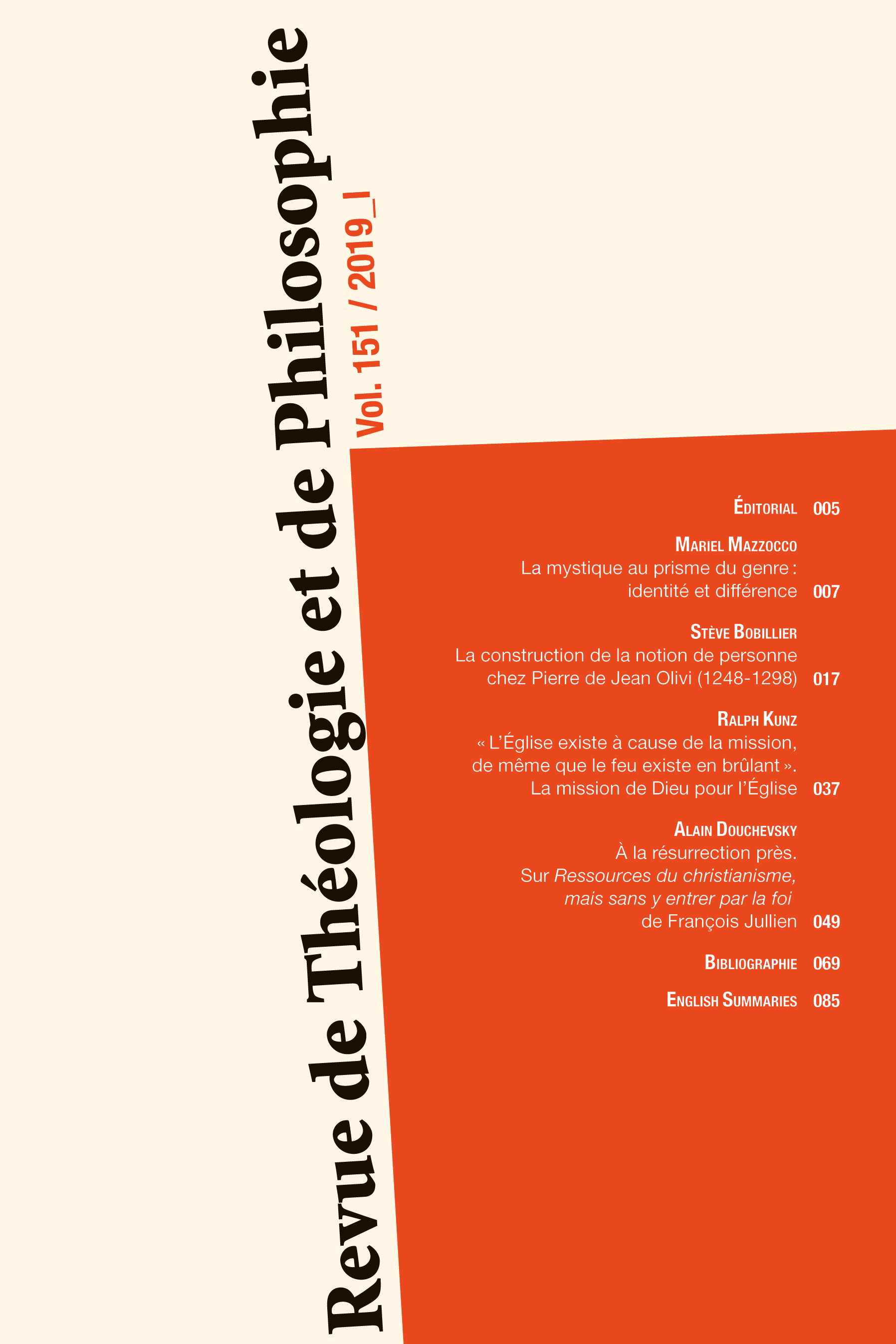Peter John Olivi and the Notion of Person
Abstract
In his critique of Aristotelian epistemology, Peter John Olivi (1248-1298) shows how the soul can know itself. Against the position of Aristotle, the intellect can only produce a fictional image. A second possibility of an immediate reflexive knowledge is therefore necessary in order for the subject to reach certainty. This inner intuition takes place through a return of the mens on itself : the movement of conscience, as Olivi defines it. That being said, it is in the notion of personality that the subject’s evidence is truly realized. After Boethius and Richard of Saint Victor, Olivi elaborates a new definition of person, as an existence through oneself, free, and capable of an immediate return to itself. In so doing, Olivi not only introduces the notion of conscience in the definition of the person, he also sees the subject as the source and principle of any knowledge.
How to Cite
More Citation Formats
Issue
Most read articles by the same author(s)
- Stève Bobillier, Johannes Bartuschat, Elisa Brilli et Delphine Carron (eds), The Dominicans and the Making of Florentine Cultural Identity (13th-14th centuries) / I domenicani e la costruzione dell’identità culturale fiorentina (XIII-XIV secolo) (Coll. « Reti medievali » 36), Revue de Théologie et de Philosophie: Vol. 153 n° 4 (2021): La relation personnelle à Dieu
